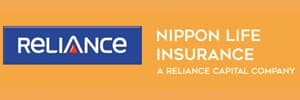Child Care Plans Offer Greater Returns than PPF or FDs
It is believed that Child care plans that offer market-linked returns fare better than traditional investment plans (public provident fund and fixed deposits). Over the last ten years, these funds have shown to offer an average return of 11% whereas traditional plans have offered returns of around 8% over the same period.
Invest ₹10k/month your child will get ₹1 Cr# Tax-Free*
Child plans articles
Explore the popular searches and stay informed
- Child Investment Plan
- Child Plan
- Government Schemes for Girl Child
- Post Office Child Plan
- Prime Minister Schemes For Boy Child
- 50k Pension Per Month
- Annuity Plan
- Atal Pension Yojana Calculator
- Best Pension Plan in India
- Best SIP Plans
- Deferred Annuity Plans
- HDFC SIP Calculator
- Immediate Annuity Plans
- Investment Plan
- LIC
- NPS Interest Rate
- Pension Plan
- Retirement Planning
- SBI Annuity Deposit Scheme Calculator
- SBI SIP Calculator
- SBI SIP
- SIP Calculator
- SIP
- Sukanya Samriddhi Yojana Interest Rate
- Sukanya Samriddhi Yojana
- ULIP Calculator
- ULIP Plan
- 1 Crore Term Insurance
- Best Term Insurance Plan
- Term Insurance for Women
- Term Insurance for NRI
- Term Insurance
- Term Insurance Calculator
- Life Insurance
- Term Insurance with Return of Premium
- Whole Life Insurance
- Term Insurance vs Life Insurance
- What is Term Insurance
- Life Insurance Calculator
- 5 Crore Term Insurance
- 2 Crore Term Insurance
- 50 Lakh Term Insurance
- Term Insurance for Housewife
- Benefits of Term Insurance
- Term Insurance Terminology
- Medical Tests for Term Insurance
- Term Insurance for Self Employed
- Claim Settlement Ratio
- 10 Crore Term Insurance
- Term Insurance for Smokers
- 1.5 Crore Term Insurance
- Zero Cost Term Insurance



































